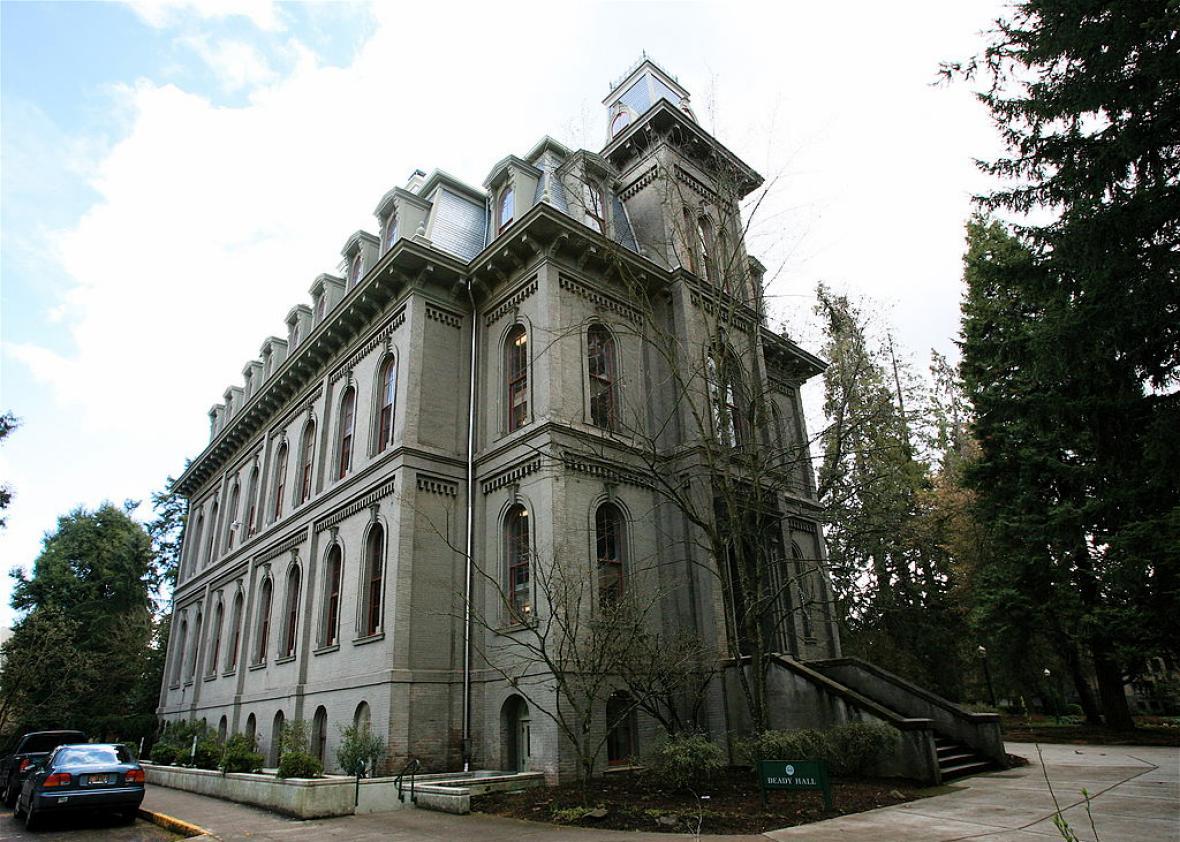The University of Oregon’s board of trustees has voted unanimously to rename a campus dormitory after it was confirmed that its eponym, Frederick Dunn, had led a unit of the Ku Klux Klan.
Dunn was an Oregon native and alumnus of UO and Harvard who served as the head of UO’s Latin Department in the early 20th century. He also led a youth organization at the Methodist Episcopal Church, was a member of the Masons … and served as “exalted cyclops” of the Ku Klux Klan.
The decision marks a victory for UO’s Black Student Task Force, comprised of UO Black Women of Achievement and Black Student Union, which proposed the renaming last November, the Eugene, Oregon, newspaper the Register-Guard reported. In accordance with the task force’s list of demands, the university also plans to construct a Black Cultural Center and expand its offering of courses on gender studies and African-American culture. The task force had requested the addition of a required Ethnic Studies 101 course, which would teach a history of social inequality in the U.S., focusing on African-Americans and other historically marginalized groups, but UO President Michael Schill said this requirement would be impossible for a school of its size. The task force also demanded that the university rename all buildings whose names are “KKK related,” including Deady Hall, named for Matthew Deady, a UO founder and pro-slavery federal judge who supported the U.S. Supreme Court’s Dred Scott decision.
The university asked historians to conduct investigations of Deady and Dunn, and their reports concluded that both had embraced racist views. Deady, for example, reportedly declared, “If we are compelled to have the colored race among us, they should be slaves.”
In an open letter to the community President Schill explained that the university’s goal is to create an inclusive space on campus while not “obscur[ing] history and hid[ing] the ugliness of our past.” He added that the decision whether to “dename” Deady Hall will be postponed until later in the fall semester when students return to campus.
In December 2015, an alumnus told the Register-Guard that renaming Deady Hall would disrespect Deady’s more honorable legacy. After the Civil War, Deady left the Democratic Party, supported the 14th and 15th Amendments, and served as a pallbearer at President Abraham Lincoln’s funeral.
The push to rename buildings whose eponyms harbor less than honorable pasts has emerged on college campuses nationwide over the last year. Just last week, Georgetown University drew national headlines for its decision to rename—for the second time—two dorms that originally honored the men responsible for the 1838 sale of 272 slaves, which funded the university. Georgetown President John J. DeGioia issued a public apology Sept. 1 and pledged to give all descendants of the 272 slaves an edge in the university admissions process. A group of descendants of the 272 has since formed an investment fund to raise money for scholarships for the descendants.
In a similar vein, in May 2015, the University of North Carolina at Chapel Hill renamed a dorm that had honored KKK leader William Saunders. The board voted to change Saunders Hall to Carolina Hall and then placed a moratorium on renaming buildings for the next 16 years. In April, Yale University rejected calls to rename residential college Calhoun College, named for 19th century white supremacist John C. Calhoun, but it did eliminate the term master for the head of each residential college.
The question of how current institutions should address and atone for past wrongdoings—practically an inevitability for centuries-old universities—may be a difficult one, but not naming buildings after documented racists and human-rights abusers is a good place to start.
